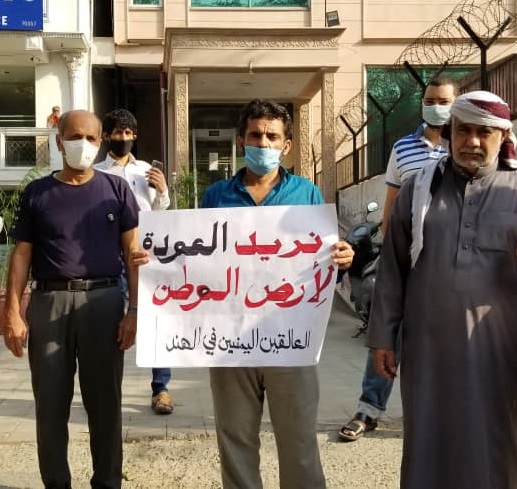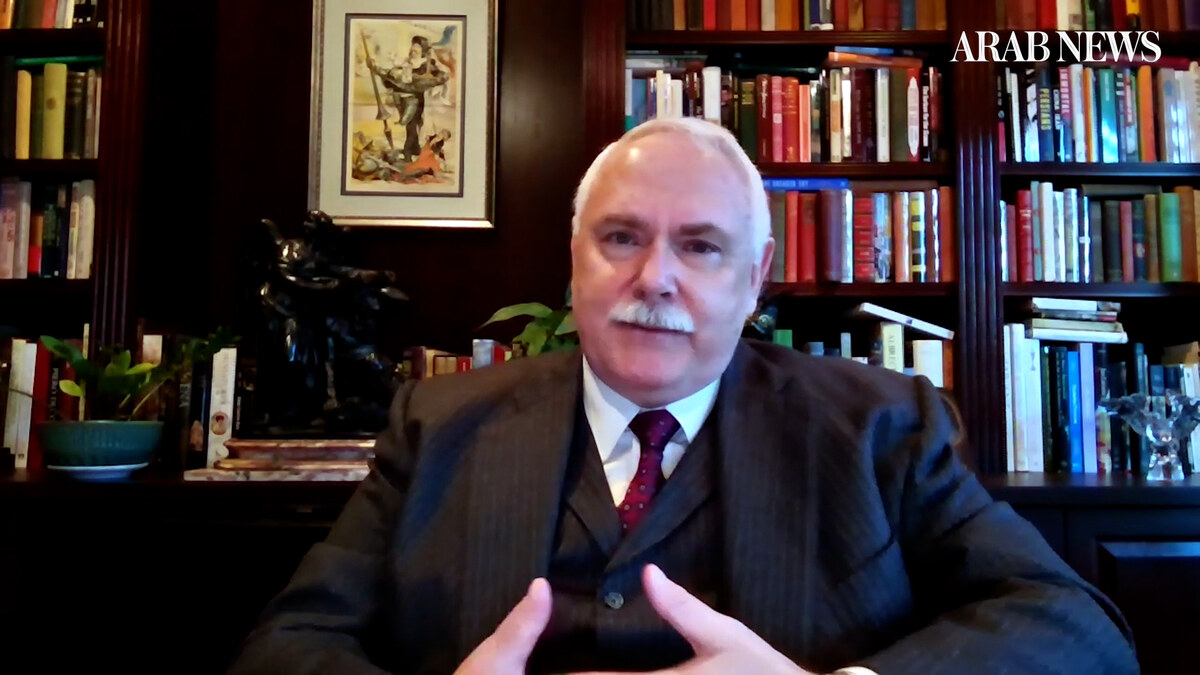Far from home, no money for food or accommodation and in fear of contracting COVID-19 — this is the situation of thousands of Yemeni nationals stranded in India due to the pandemic.
“I came to India to get an operation on my eye. We are staying in a hotel but we can’t pay for the hotel anymore. And now I just want to return to Yemen,” six-year-old Mohammed Abdulnoor Radman said.
The young boy had been taken to the Mehta International Eye Institute in Mumbai for an examination of his right eye that was found to have corneal perforation on March 3. More than two months later — like thousands of others — he is still in India, unable to return home.
Hussam Galeel is in a similar position. He travelled to India in late February for his little brother’s thyroid operation. They had booked tickets back to Yemen on March 20, but when Yemen suspended international flights on March 18 in response to the coronavirus outbreak Galeel and his brother were stranded in India.
“Who is going to support us financially here?” Galeel asked. “There are many others here like us, and their situation is even worse than ours,” he said.
Galeel was referring to the thousands of Yemeni nationals who had travelled to India for medical reasons but were now unable to pay for hotels and daily expenditure such as food and drink.
Citizens from Yemen – which has had its infrastructure weakened by the civil war – mainly travel to India for medical reasons. Figures from India’s Bureau of Immigration show that Yemen is a major source of the country’s medical tourists. In 2017, 11,903 Yemeni nationals travelled to India for medical treatment.
The war in Yemen, which erupted in 2015 between the Iranian-allied Houthi militia and the Saudi-backed internationally recognized government, has killed and wounded thousands of soldiers and civilians. It has also devastated the health system, so that doctors in Yemen recommend advanced treatment abroad for the injured.

A Yemeni national who is stranded in India holds a poster that reads in Arabic "we want to return to our homeland," on May 9, 2020.
A Yemeni doctor sent to India by the government to oversee the medical treatment of 90 wounded people told Arab News – under the condition of anonymity – that the situation of Yemeni citizens in India was devastating.
“We have a patient who is suffering from depression after finishing his medical treatment. He is not in his right mind at the moment and might run away again from the hotel and get caught by police, who would beat him and arrest him,” the doctor said, explaining that he and his team would then have to bail the patient out of jail.
After Prime Minister Narendra Modi’s government put the country under lockdown on March 25, several videos surfaced on social media showing police brutality inflicted on those who violated the curfew. Footage showed officers using what appeared to be as canes to beat offenders.
Why police are beating people who are carrying essential commodities ...
— Ok (@StrictlyAsking) March 25, 2020
Why police is beating people in lockdown? Can't they just book them or tell them to go home? Why violence? #21daylockdown #PoliceBrutality pic.twitter.com/Z3ls4hAi7x
— Utkarsh Chaudhary (@iam_utakarsh) March 25, 2020
The Yemeni doctor, who said he himself was suffering from depression due to the current situation, said he knew of Yemeni citizens who were only able to afford one meal a day as their budgets were running low.
“People came to India with a budget sufficient for their stay; they didn’t plan for a pandemic keeping them away from their homes for this long,” he said, adding that many feared getting infected.
Since the virus was first identified in Wuhan, in China, at the start of this year, 4.5 million people have been infected in the world, and more than 300,000 have died. The rapid spread of the virus led governments worldwide to stop international flights, close their borders and impose nationwide lockdowns.
The Yemeni embassy in New Delhi had done little to help its nationals stranded in India since the start of the lockdown, the doctor said. He explained that he had seen a list sent to the embassy of 1,600 names of Yemeni nationals that needed to return home, but believed that the official number of stranded citizens far exceeded 2,000.
Yemen’s ambassador to India, Abdulmalik Abdullah Al-Eryani, did not respond to Arab News for a comment.

A Yemeni national holds a poster that says in Arabic "stranded Yemeni" on May 9, 2020.
Fahd Al-Maqtari, a Yemeni expat who has been living in India for the past 18 years, said that for the past two months he and other Yemeni expats had been receiving dozens of messages from stranded Yemenis asking for help.
According to Al-Maqtari, there are more than 1,800 sick and wounded patients and more than 2,400 students stranded across India.
“It’s not easy for people from Yemen to come here for medical treatment. They usually sell something valuable like land or their cars, even their wives’ gold, to be able to afford to come here to get treated for one month or two. They don’t have enough to stay longer,” Al-Maqtari said, explaining how some are relying on food donations from locals.
Recovering patients were particularly vulnerable, Al-Maqtari explained, as they were unable to seek medical assistance during the lockdown and were often turned away from hospitals that were only accepting COVID-19 patients.
Al-Maqtari explained that he had been in touch with Yemeni diplomats working in the embassy, including the ambassador, to get help for those who were vulnerable, but had been ignored.
The United Nations’ International Organization for Migration (IOM) said that they were not aware of the situation of Yemeni nationals stranded in India. However, the organization released a statement to Arab News that called on “consular support” for stranded nationals and help for migrants in response to the COVID crisis.
“Consular support and return assistance are a vital lifeline for many people who find themselves in difficult conditions and want to return home and re-establish themselves,” the statement said.
“(The IOM) calls on countries to address the particular needs and vulnerabilities of migrants, regardless of their legal status, in the spirit of Universal Health Coverage. The fight against COVID-19 cannot be won unless the response plans in all countries include migrants, especially those marginalized or in situations of vulnerability,” the statement added.
“Being stranded here is already a big problem for us, but it will get worse if we get infected with the coronavirus,” an older Yemeni man said.

Yemeni nationals stranded in India calling on international humanitarian organizations to defend their rights to return to Yemen.
Another man called on the government to return them back to Yemen. “If we are required to be quarantined, we are happy to comply and do so, even if it is in the middle of the Yemeni desert,” he said.
In Yemen, scores of COVID-19 cases have been recorded across the country, but the UN warns that the virus is spreading largely undetected. Hundreds of people in the interim capital Aden have died in the past week with symptoms of what appears to be the coronavirus, local health officials said.
The officials fear the situation is only going to get worse as Yemen has little capacity to treat those suspected of having the virus.
However, for those stranded in India, facing fears of coronavirus at home is better than facing the threat abroad.
“We ask President Hadi — whom the Yemeni people voted for — and the internationally recognized government to look after Yemeni nationals no matter where they are,” said a man who had been stranded in India for more than two months. “We just ask them to repatriate us, like other leaders who returned their citizens home from abroad.”



























